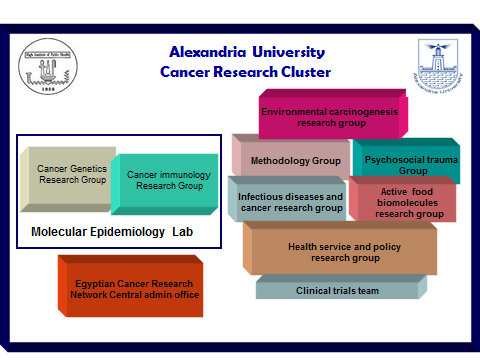Research Clusters, in concept, represent a structural framework for research settings. They are powerful centres of creativity in which teams of researchers from a wide range of disciplines collaborate across traditional boundaries to bring research knowledge to bear on issues of intellectual, scientific and cultural importance. A research cluster is formed of a number of research groups. Each research group conducts one or more research programs.
The cancer epidemiology research cluster of Alexandria University (CERC) is the first "prototype" research cluster in Egypt. It was conceptualized to transfer the operational model of an international research organization to Alexandria University, in terms of its scientific and administrative structure, as well as its operating procedures.
We established the Cluster in 2010 at the High Institute of Public Health. However, it is not correct to say that CERC was established to house research on cancer. CERC, in fact, emerged around a developing research program on cancer and then, as our research portfolio expanded, our research network widened nationally and internationally, the need for a structural framework was identified. We proposed to transfer the operational model of an international cancer research organization, adopting the scientific and administrative structure so we could create a suitable background environment for our work.
